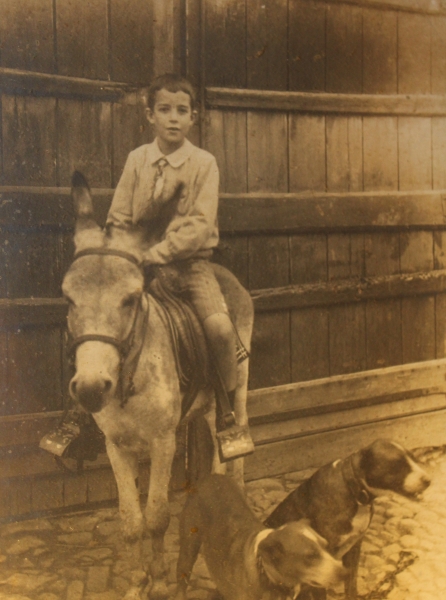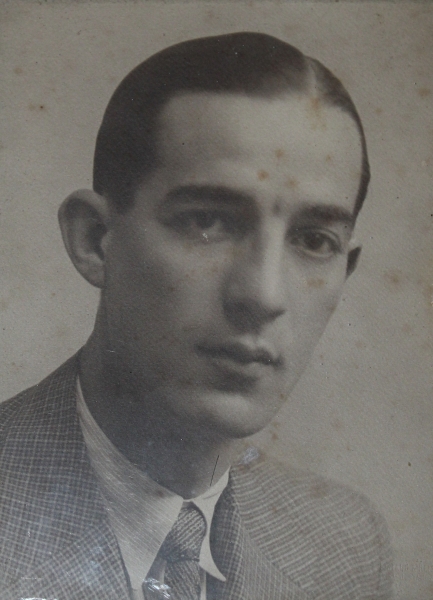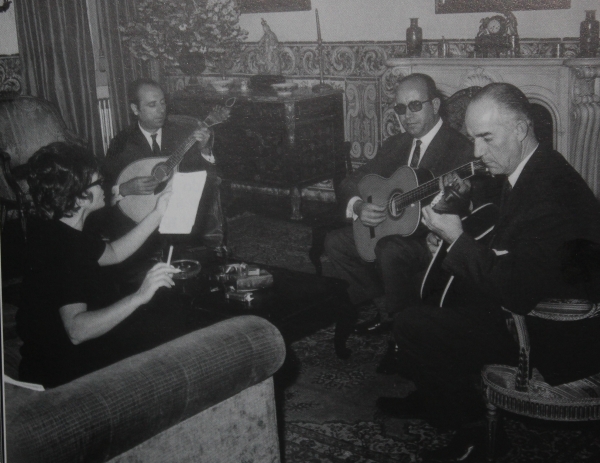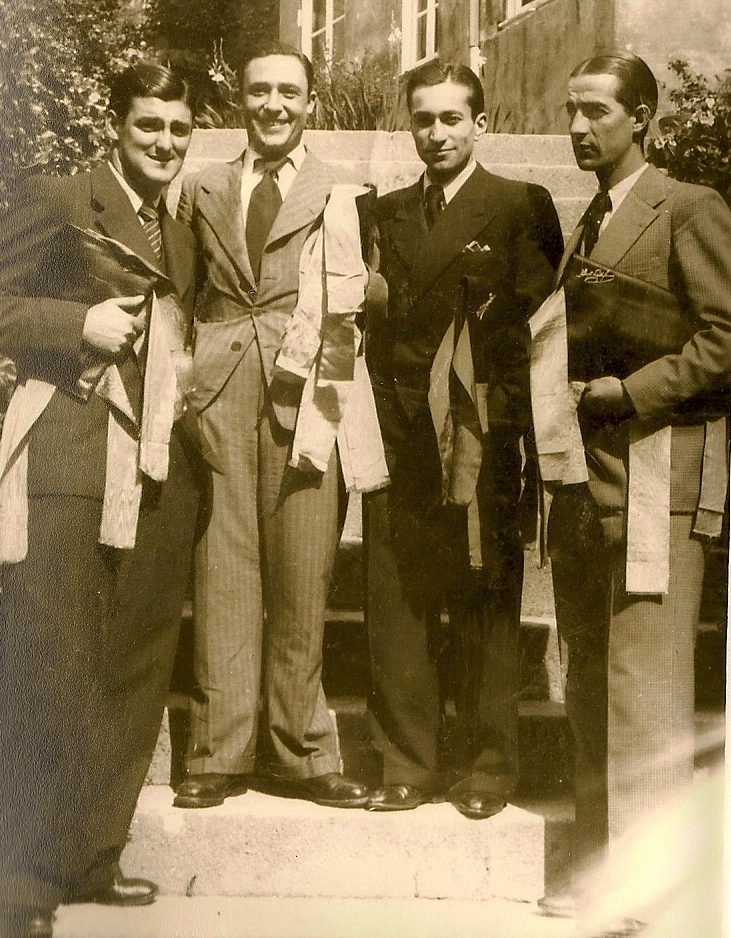Know more:
Alberto Janes
(N. 13 March, 1909 - M. 23 October, 1971)Alberto Janes was born on March 13, 1909, in Reguengos de Monsaraz, youngest son of Maria do Carmo Fialho and Armando Janes. His father was a pharmacist, owner and technical director of the Farmácia Moderna, at the same location. The Janes family lived in the building that also housed the pharmacy. Alberto had an older brother, Carlos, who died prematurely, victim of pneumonia.
Since he was very young, Alberto Janes demonstrated a special interest and ability for music and writing, but during his school days, at the Évora School, he also experienced the taste for the chemistry and pharmaceutical field.
Alberto Janes engaged the pharmaceutical area at the Lisbon University, at the old “Quinta da Torrinha” and, after, moved to the Oporto Pharmaceutical University, where he eventually completed his studies in the mid 30s.
The classmates characterized Janes as a "student rich with money-pocket", a musician and poet, not gifted for the study of pharmaceutical issues and more focused on further readings and going out. It's at the end of the course that Alberto Janes integrates a team of students to perform a farewell recital. This musical show became known as “As pílulas do Sr. Doutor”, (The pills of Mr. Doctor) and all the writing and music was done by Alberto Janes, who turned out to play, in an exemplary way, the “compére” role.
After graduation he returns to Reguengos de Monsaraz and, due to the death of his father, becomes the owner and technical director of the family pharmacy. In 1936 marries Maria de Lourdes Figueiredo with whom he has two children.
During his life in Reguengos de Monsaraz, in the 40s and 50s, he spent long nights at the Café Central of Reguengos, at gatherings where he improvised playing and composing. During these decades, Alberto Janes was often alone at the piano to compose and write. It was then that he wrote the famous song “Foi Deus”, which he said “It was a fado for Amália."
According to an interview given by Amália Rodrigues, Alberto Janes came to her house and told her that he was a pharmacist with a pharmacy in Reguengos, but that his great passion was music, to be an artist and that he had a fado for her. Amália found then his written words and music and performed it with great success throughout her career.
In the 60s, Alberto Janes family moved to Lisbon and stayed in Oeiras. Amália had already recorded other musical themes written by Alberto Janes, such as “As rosas do meu caminho” and “Fadista Louco”. In fact, at this point, the composer and lyricist only wrote to Amália Rodrigues. In this decade, there are other works such as “Um fado nasce” and “Vou dar de beber à dor”, the last a highly successful in her career that led to the recording of versions in other Latin languages.
The Janes family kept a close contact with the family of Aluísio Marques Leal, his former classmate, who made part of a company in the pharmaceutical industry to which belonged the pharmacy Estácio, in downtown Lisbon. At this time, the pharmacy needed a pharmacist and Alberto Janes was interested in returning to the pharmaceutical business, so he started to lead this pharmacy.
In 1970 Amália sings “É ou não é?” and launches a long version on a vinyl, entirely with Alberto Janes’s compositions, including among others: “A Rita Yé, Yé”, “Vai de roda agora” and “Lá na minha Aldeia”. “Oiça lá Ó Senhor Vinho” is recorded in 1971, a success that gave name to a new vinyl of Amália Rodrigues, the last that Alberto Janes assisted.
Alberto Janes died suddenly on 23 October 1971, aged 62, after a second myocardial infarction. However, its contribution to the record heritage of Amália Rodrigues was not over yet, Amália will edit one more of his works, which she called “À Janela do Meu Peito”.
The influence of Alberto Janes on the Portuguese fado continued to be felt in the 70's and 80's with songs like “Caldeirada”, “Ao poeta perguntei”, Il mare é amico mio”, and many other songs sung by the performers like Francisco José, Fernando Machado Soares, Hermínia Silva or Alfredo Marceneiro.
In 1981 his family and friends paid him tribute unveiling a plaque at his home in Reguengos de Monsaraz. Also the Reguengos City paid him tribute giving his name to a street on that location, on the 25th April 1984.
Source:

Alberto Janes em criança

Alberto Janes, sem data

Alberto Janes com Amália Rodrigues, 1966

Alberto Janes, Faculdade de Farmácia do Porto, década de 1930
-
Foi Deus Amália Rodrigues (Alberto Janes)